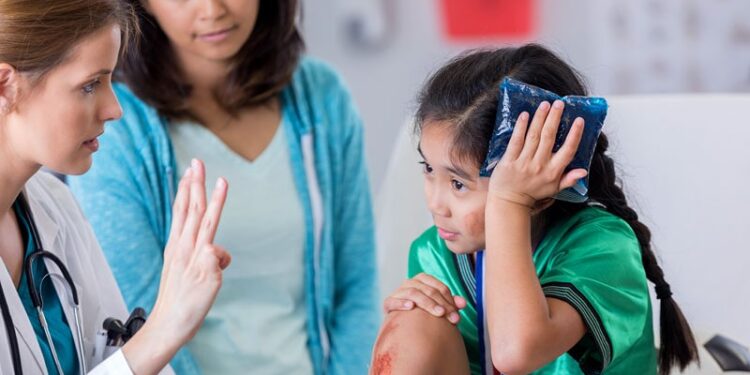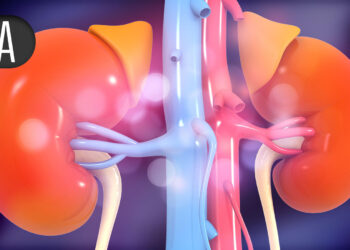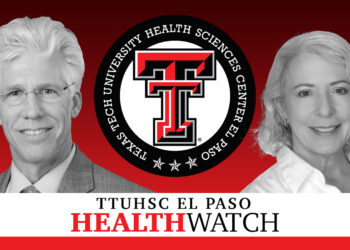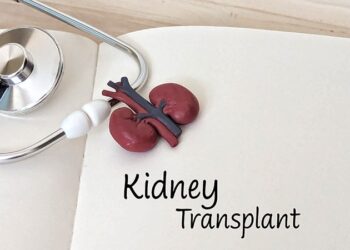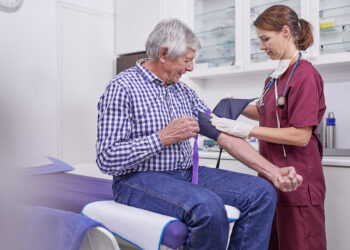Restoring optimal functioning after pediatric concussion may take longer than conventionally thought — at least 3 months, especially for girls — when several outcome domains are part of the assessment, according to a new study.
Concussion studies tend to focus on symptoms alone, but that approach might miss factors such as how patients are functioning in school or how they feel emotionally, lead author Miriam H. Beauchamp, PhD, professor of psychology at the University of Montreal, Montreal, told Medscape Medical News. Optimal functioning goes beyond having fewer symptoms. “It is like [someone] never had an injury,” she said.
The study was published online on March 19 in JAMA Network Open.
Concussion and Orthopedic Injury (OI)
For this large, prospective cohort study, 967 children aged 8-16 years with concussion (n = 633) or OI (n = 334) were recruited from five Pediatric Emergency Research Canada emergency departments. The researchers used OI as the control group because children with concussion and OI tend to have similar experiences before and after the injury, except for the brain’s involvement with concussion.
Research staff gathered demographic and acute injury information and assessed balance and neurocognitive function. Study participants were then asked to complete in-person assessments at approximately 10 days, 3 months, and 6 months after the injury. Parent ratings of preinjury postconcussive symptoms were gathered retrospectively; all measures are validated.
The main outcome was optimal functioning, which was derived from 11 variables and criteria indicating the absence of impairment and average or above-average functioning in each domain (overall score, 0-11, with 11 signifying the highest function). The realms included postconcussive symptoms, cognition, quality of life, and four domains of functioning (ie, motor-physical, cognitive, socioemotional, and resilience support).
Children with concussion had lower optimal functioning than children with OI until 6 months after injury. Women were less likely to have higher optimal functioning than men up to 6 months after injury, wrote the authors. Median optimal functioning scores for the OI group were 6.0 at 10 days, 7.0 at 3 months, and 7.0 at 6 months. For the concussion group, scores were 4.0 at 10 days, 6.0 at 3 months, and 7.0 at 6 months.
“Clinically, these findings may help to explain why some children, especially girls, take longer to feel as though they are well, even though subjective and objective assessments of symptoms or specific functions indicate absence of problems. Most children reach optimal functioning within 3-6 months,” the authors explained. “This information should be included in anticipatory guidance and reassurance to families.”
It’s unclear why girls may take longer than boys to recover from concussion, said Beauchamp. One theory is that girls may be more honest than boys about symptoms, and another is that differences between girls’ brains and hormones and those of boys may explain the findings.
Managing Expectations
The conclusions don’t address the speed at which children should be cleared for activities such as sports. Guidelines for return to play need to be based on symptoms, said Beauchamp. The current findings can help children, families, and pediatricians manage expectations and understand that longer recovery is normal.
“We often feel that we don’t understand why a young person who has concussion is still struggling after several months,” said Beauchamp. Most children do recover quickly from concussions, she noted. “After about a month, only about one third have symptoms. It’s a small minority.”
“Every young person experiences concussion differently. Because of this, we need to start looking at experiences broadly and move away from focusing only on being symptom-free,” Shannon Scratch, PhD, who did not participate in the study, told Medscape Medical News.
Scratch, a senior clinician scientist and clinical neuropsychologist at the Bloorview Research Institute at Holland Bloorview Kids Rehabilitation Hospital in Toronto, said that evaluations should consider mental health and whether young people are back in school, able to reengage in physical activities, or having challenges with their social life.
“We need researchers, using larger samples and consistent measures, to help establish ways to comprehensively measure functioning after recovery. It’s refreshing to see this starting to emerge in the scientific literature,” said Scratch. “It maps on nicely to the perspectives we take in the Neurorehab Outcomes via Education and Learning Lab when building clinical interventions and treatments for young people after concussion.”
Clinicians have an important role to play in sharing the information, Scratch added. “Clinicians need to be mindful that it may take longer than we previously thought for some young people to return to optimal functioning after a concussion. Clinicians that work with young people after concussion and their families have a significant role to play in educating families about realistic expectations for recovery. This study provides that guidance.”
Limitations of the study include the questionnaires’ reliance on self-report. Third-party and objective assessments may provide different results. Also, the sample was recruited in large urban hospitals, which limits generalizability to all pediatric concussions.
This study was funded by the Canadian Institutes of Health Research (CIHR). Beauchamp reported a Tier 2 Canada Research Chair in Pediatric Traumatic Brain Injury, royalties from Guilford Press, and serving as a board member for the International Paediatric Brain Injury Society and International Brain Injury Association during the conduct of the study. She also reported grants from CIHR and Canada Foundation for Innovation outside the submitted work. Scratch reported having no relevant financial relationships.
Marcia Frellick is an independent healthcare journalist. She regularly contributes articles on primary care and specialties including cardiology, oncology, and dermatology.
Source link : https://www.medscape.com/viewarticle/childs-full-recovery-concussion-may-take-3-months-plus-2025a1000813?src=rss
Author :
Publish date : 2025-04-03 10:10:00
Copyright for syndicated content belongs to the linked Source.

